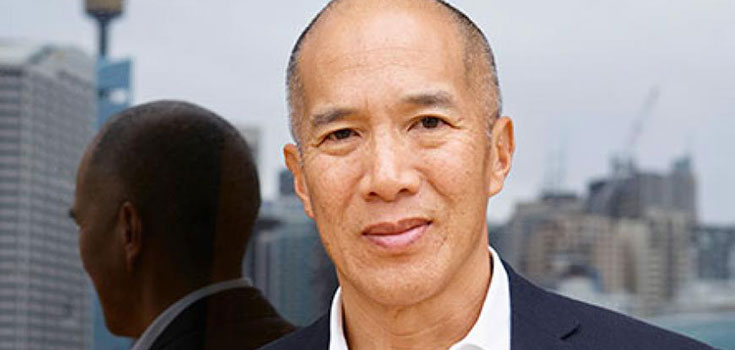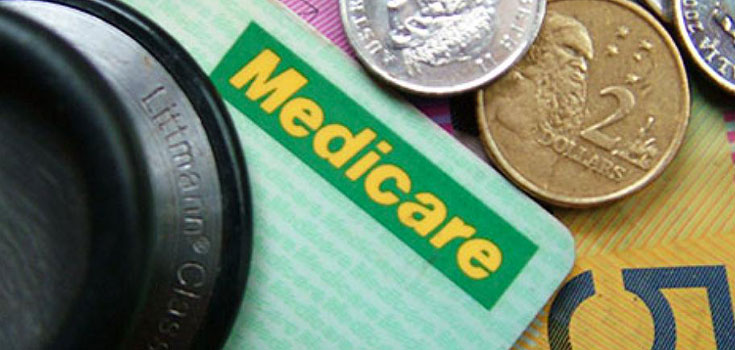Charlie Teo, UTI menace and 40-minute care plans: AusDoc stories of the year
Australian Doctor is employing the retrospecs to take a look back at the main stories of year. At number 6 and 7 we reach the trial and tribulations of Dr Charlie Teo and the issue with more sequels than Rocky: pharmacy turf wars.
Number 6: ‘They will eventually get me’
The headlines were never far from neurosurgeon Dr Charlie Teo — most of them unwelcome.
It began with a couple of posts on Twitter questioning his “excessive” fees by Professor Henry Woo. The urological surgeon expressed “disturbance” at the number of fundraising campaigns being launched to pay for Dr Teo’s operations.
If the surgeries were “valid”, he asked, surely they would be funded in the public system.
The comments led to a very public fallout for both doctors.
Professor Woo said he received trolling, hate mail and abusive phone calls in response to his tweets, while Dr Teo faced pressure to justify the cost of his surgical fees, which can top $120,000, along with more details of his outcomes.
Referring to the Twitter storm as an attempt to “destroy or discredit” his reputation, Dr Teo claimed most of his fees went towards covering private hospital costs and that he would operate free of charge in the public system if he received an invitation.
Dr Teo later told the Health Professionals Australian Reform Association conference that medical bodies, including AHPRA and the AMA, wanted to force him out.
“They will eventually get me,” he said. “I know that sounds very fatalistic and a bit pessimistic, but I think it’s probably true because a lot of good people have gone down to the system.”
By now, the profession might have hoped that the saga had run its course.
But the most explosive claims came in September when an investigation by the Sydney Morning Herald and The Age accused Dr Teo of narcissistic and inappropriate behaviour, based on the interviews of 14 specialists, as well as repeated concerns of his allegedly exorbitant fees.
None of the sources taking aim at Dr Teo were willing to be named, with the newspapers attempting to justify their anonymity by saying they feared they “would be subject to a public backlash”.
Dr Teo, who had considerable public backing, hit back, dismissing the investigation as “inaccurate”, “sensationalist” and “biased”, and warning he was consulting with his lawyers.
The year ended for Dr Teo with his reality TV show Medicine or Myth? receiving Australia’s top award for pseudoscience for its “abysmal” portrayal of home health remedies.
One episode featured Dr Teo undergoing an “Emotional Freedom Technique”, involving people repeatedly tapping two fingers along their “meridians” in an attempt to remove stress.
The expert panel was initially sceptical but was convinced to conduct a trial after Dr Teo tried it on camera and claimed his back pain disappeared.
Number 5: ‘Increasing funding for general practice would be a disaster’
While the vast majority of GPs and pharmacists get on well, living in professional peace and harmony, the same cannot be said for the numerous lobby groups representing their interests.
This year, new depths of division were plumbed after pharmacists’ leaders started a push to prescribe as well as dispense schedule 4 and schedule 8 drugs.
The issue flared in February.
The president of the Pharmacy Guild’s NSW branch threw a verbal grenade at GPs by arguing increased investment in general practice would be “a disaster for an already struggling MBS budget”.
“You will find in the corporate GP practices, business models that appear to encourage five-minute medicine turnstile operations which encourage patients to come in for short visits and often,” David Heffernan declared.
The clearly more useful alternative, he argued, was to let pharmacists prescribe treatments for UTIs and migraines.
RACGP president Dr Harry Nespolon called this “an uninformed rant”.
“The closest thing I see to a turnstile in healthcare is at the cash registers of the pharmacy” was his riposte.
A month later, the Pharmacy Board of Australia was canvassing opinions on different pharmacy prescribing models, from ‘supervised prescribing’ following a GP’s instructions to full-bore unfettered autonomous prescribing rights.
The latter could be achieved, the board’s consultation paper said, via a postgraduate qualification, although exactly what qualification remains unspecified.
Then came a further grenade. The Queensland Government suddenly announced it was launching a trial of pharmacists prescribing antibiotics for UTIs and repeats of the contraceptive pill.
The reaction was swift, with fears patients would be at immediate risk.
“What happens if you remove the ability of a GP to ask sensitive questions, stop them examining the patient, disable their access to order and follow up test results, give them no hospital experience caring for the complications of UTIs and dramatically reduce their clinical reasoning through training?” asked Dr Rob Park, a GP on the Sunshine Coast in Queensland.
“This is what we are doing by allowing pharmacists to write antibiotic scripts for UTIs.”
While the mind of the average politician seems bamboozled with the logic of this kind of argument, it was followed by Australian Commission on Safety and Quality in Healthcare — not known for playing in partisan medical politics.
In a submission to the TGA, it warned that pharmacist prescribing for UTIs threatened patient safety and undermined the fight against antibiotic resistance.
At this point, the famed lobbying power of the Pharmacy Guild of Australia appeared to splutter.
By October, the pharmacy board had declared it needed COAG approval before letting pharmacists prescribing autonomously and had no intention of asking “at this time”.
And in NSW, the idea of pharmacists prescribing for UTIs was publicly kyboshed by the State Government.
The question remains, however — what’s happening to the Queensland Government’s planned trial, dubbed dangerous by the AMA.
Eight months on, numerous questions have been lodged by Australian Doctor.
As yet, there have been no details.
Number 4: The loaded gun of the MBS taskforce
It’s still the sleeper issue — the fallout of the much-maligned MBS Review Taskforce draft report on primary care.
It gets few mentions now, but early in the year, GPs learnt that the taskforce’s expert committee wanted a host of changes to those items making up the backbone of the specialty’s funding.
They included imposing a 40-minute minimum time limit of GP care plans, apparently because no doctor had the skills to draw one up quicker. There was a ban on level A consults, lasting less than six minutes.
To be fair to the experts, there were other, more positive, suggestions, including the idea of higher rebates for reviewing care plans (although no dollar figure was attached), Medicare money for enrolling patients (although details were a little vague) and ending the pantomime of the team care arrangement items.
At the time, Australian Doctor asked whether the report’s main recommendations should be employed as a “loaded gun for the government to finally put general practice out of its misery”.
But since then the expert committee has disappeared from view.
There were promises that the taskforce’s revised recommendations would come out this year. The last Australian Doctor heard was that a rewritten report is due next year.
The fact that it is now expected in the middle of next year may indicate how blurred the original vision was.




